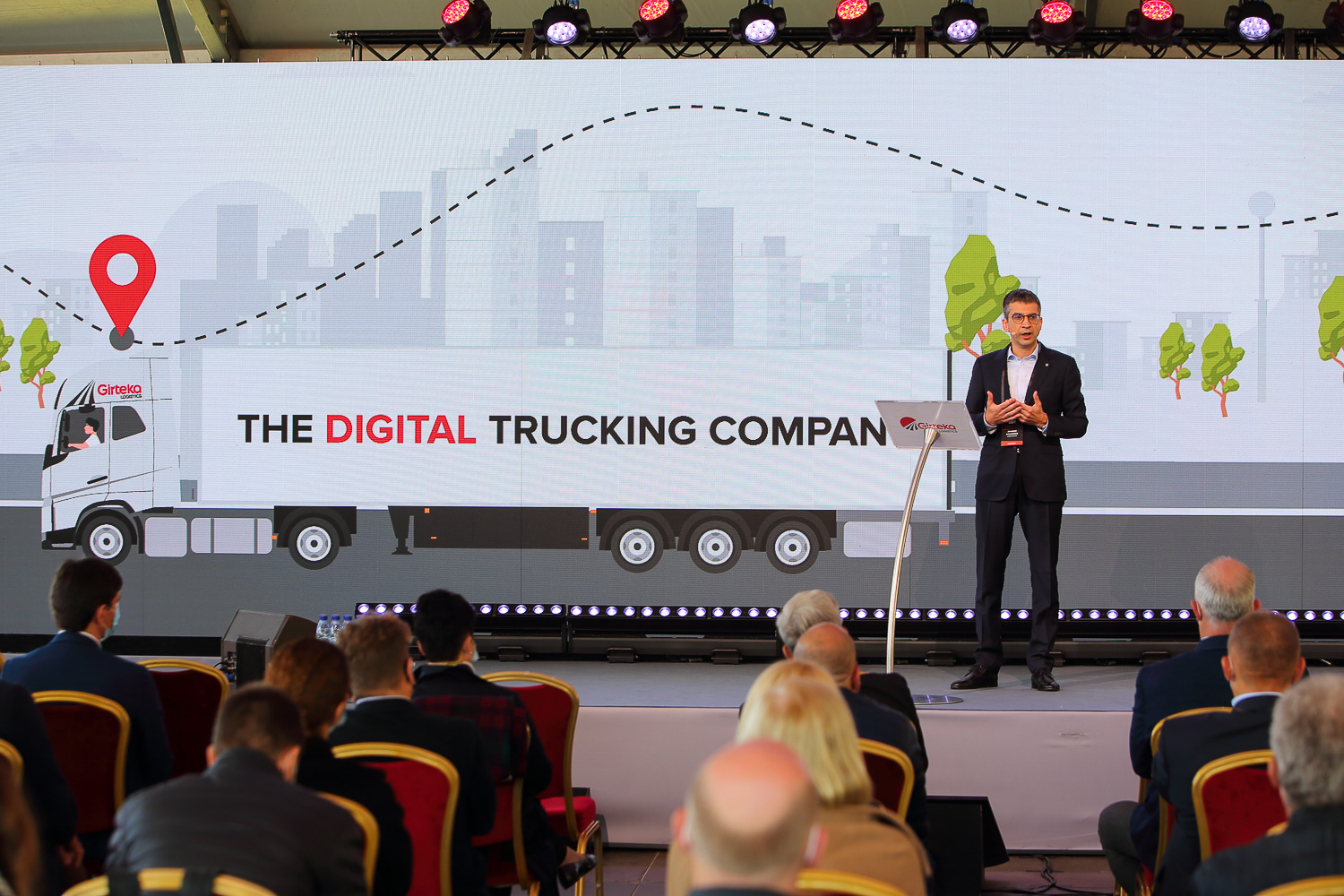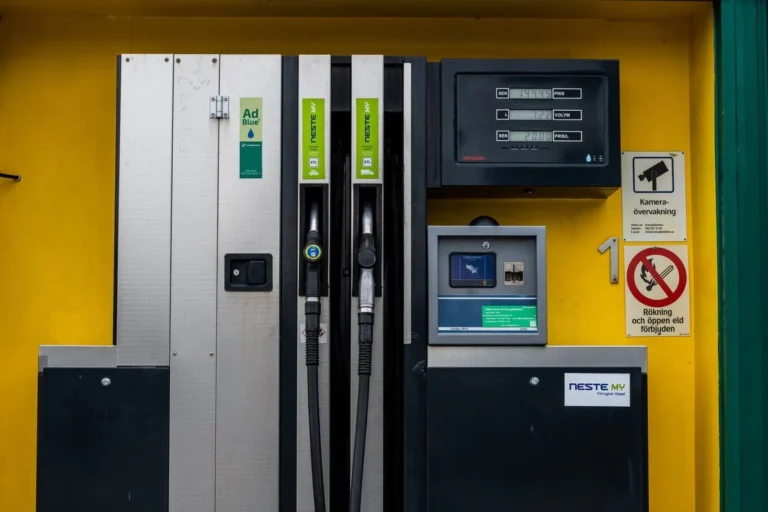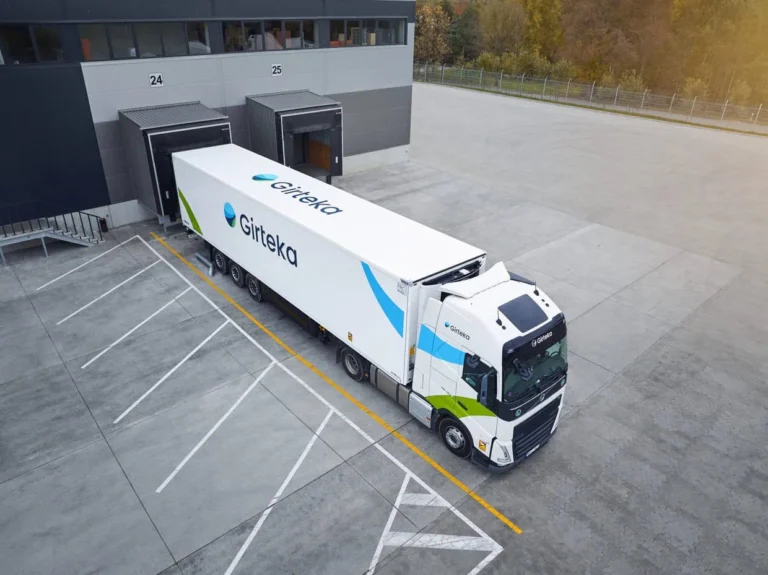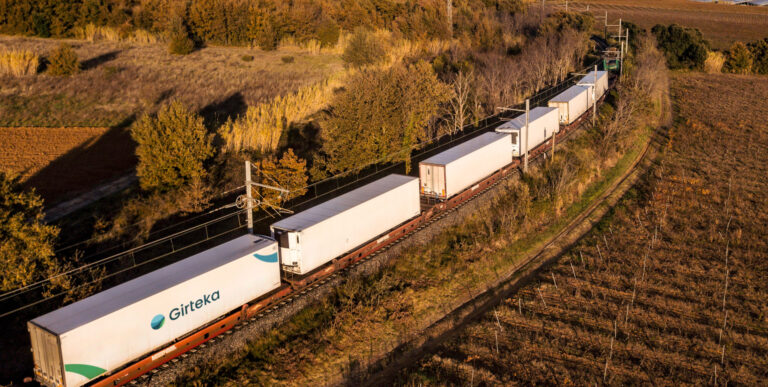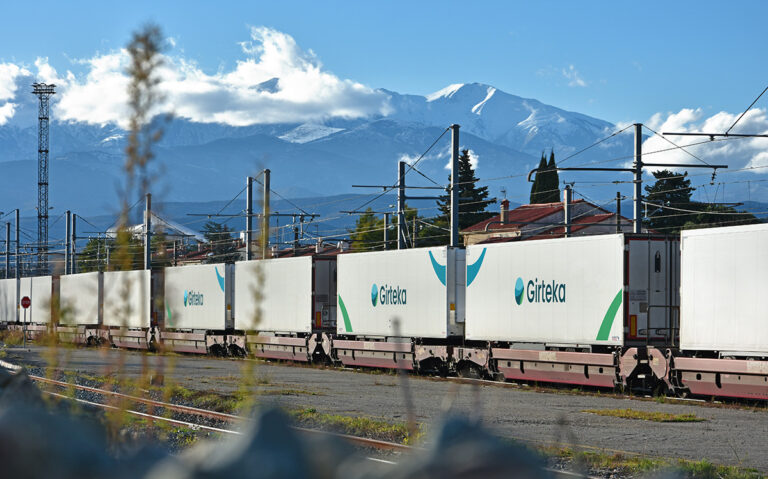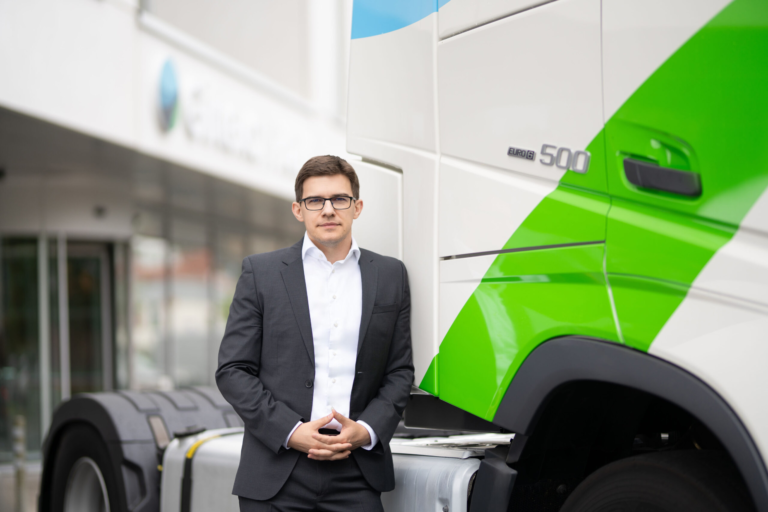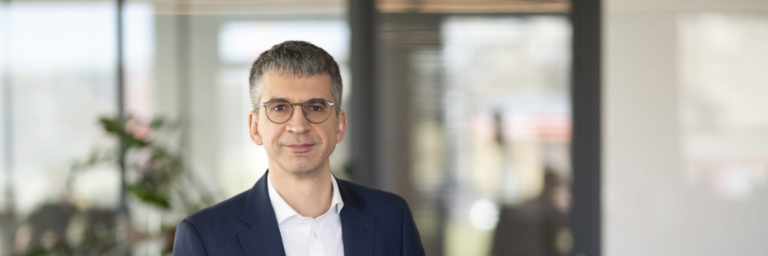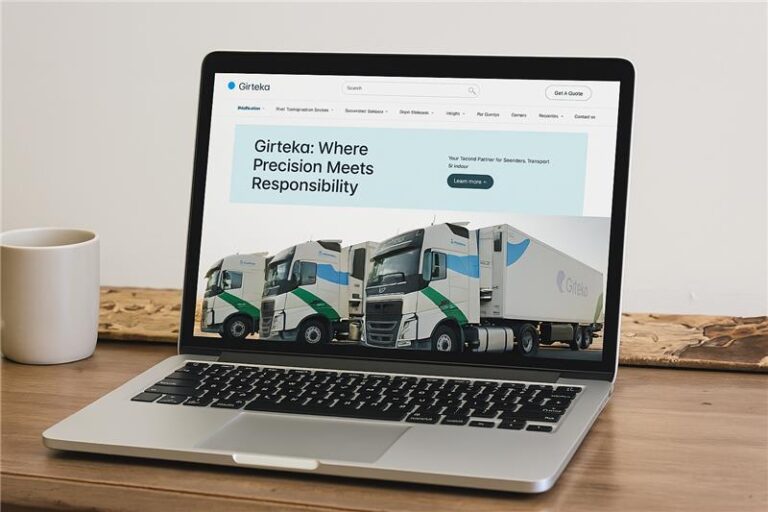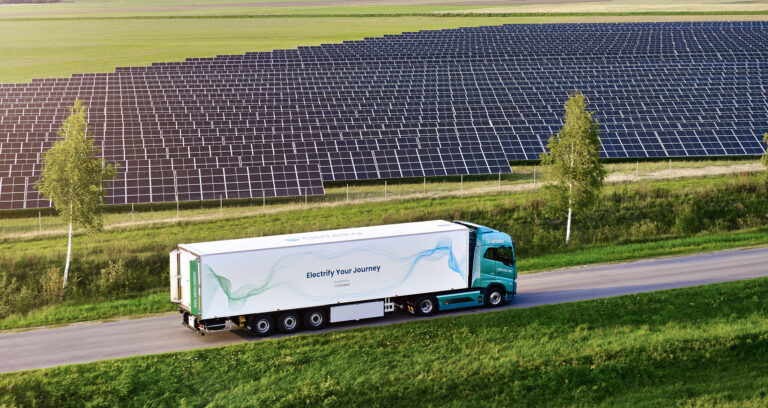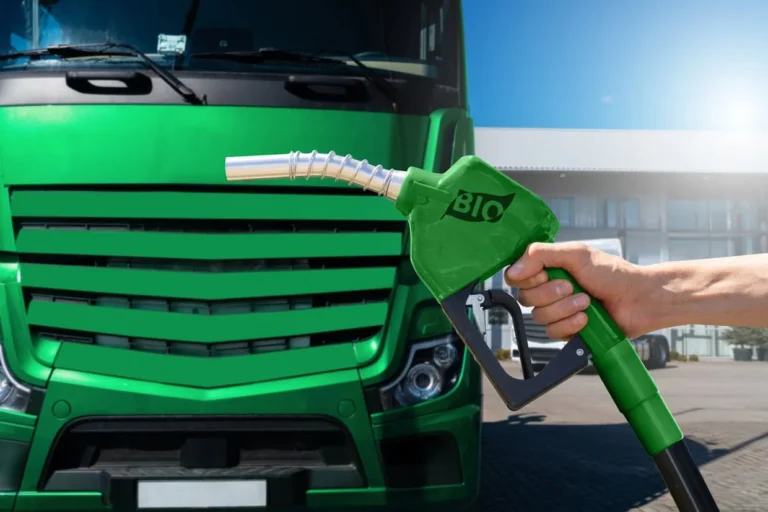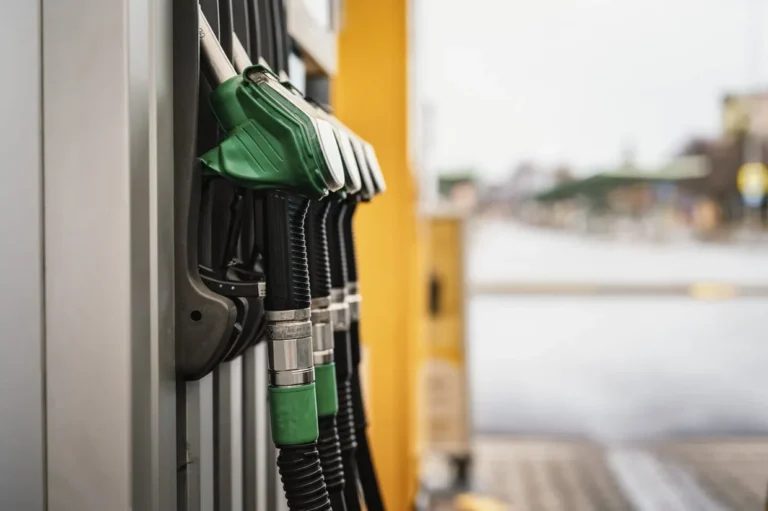Edvardas Liachovičius, CEO of Lithuanian trucking company Girteka Logistics, admits that during the company’s twenty-year history he has seen quite a few recessions and that not every moment was smooth sailing. Some difficult decisions had to be made, often with a lot at stake, such as when he had to get funds from a bank to cover the company’s loan with his own property as security.
Started his career in a different logistics company
Speaking at last week’s Leadership Conference EBIT, Liachovičius started his speech with a few remarks on the beginnings of his own career in the transportation sector. He told the audience about landing his first job in another, smaller logistics company during his last year of studies and working there for a year until it became clear that the company was about to close. ‘I’m nonetheless grateful for this start and the chance to realise that there are far more successful companies in the market. I discovered that transportation is interesting, that it is an industry where I can work and make a living. For me, a twenty-something living in a dorm, this was really important,’ he said. Liachovičius subsequently decided to continue his studies and enrolled in a Masters’ programme in transportation, which by coincidence led him to Girteka Logistics. It was on the university’s notice board that he saw a Girteka Logistics job ad looking for a transportation manager.
‘After a brief conversation with Girteka Logistics then-CEO Mindaugas Raila, I became the company’s fourth employee. It was a real job, and my boss was a true businessman, a very entrepreneurial and hard-working person, who set high standards for himself and others,’ said Liachovičius, describing Raila. He went on to note that despite seeing the new job as a big win at the time, he soon realised that serious challenges laid ahead. ‘Girteka Logistics and other Lithuanian transportation companies were riding a good wave, with high profit margins and the feeling that Lithuanian freight carriers were the backbone of the transportation sector, dominating it. In university we were constantly being told, to the point of irritation, that Lithuania was the key transit hub linking East and West. But then I started visiting my clients, going abroad and buying books on transportation. And I realized that these beliefs were false. Lithuanian freight carriers take up only a small part of the transportation market, and Lithuania is definitely not a hub between East and West. My view of the world shifted, and this change coincided with the recession of 1998,’ he said.
Difficult decisions needed to be made
Liachovičius noted that with some 90% of Girteka Logistics turnover generated in East-West routes, the company saw a reduction in cargo flows almost as soon as the recession hit, with no payments from clients coming in. ‘We found ourselves in debt to every transportation company and subcontractor we worked with, all of whom were very set on getting their money back’ the CEO reminisced, adding that some very difficult decisions needed to be made. ‘The easiest way out would have been to shut down the company, but we chose not to do it. We truly wanted to save the company and stay in business, therefore we decided to get to work and repay our debts. Along with this decision, I was offered to buy 10% of Girteka Logistics shares. The price was neither large nor small, equalling to all my savings at the time. But the 23-year old me saw this as normal, so I invested without hesitation,’ the CEO said and went on to describe what happened next as nothing short of a miracle.
According to him, the company managed to keep orders coming and, in two years’ time Girteka Logistics had paid off all outstanding debts and gained an excellent reputation. ‘For us, this was the start of an ambitious growth period. We began to understand that we were moving forward because of our clients, therefore we decided to work with them directly. We follow this principle to this day.
I have a vivid memory of a visit by a vice-president of one of the world’s largest logistics companies. Talking to him during dinner, I asked if he had been to the Baltics before. He said no, and that before he didn’t even know where exactly the region was. I asked the vice-president why he was here and whether he was visiting any other transportation companies in the region. Once again, he said no, adding that his job was not visiting companies, but their largest partners. And we were their largest service provider in Europe.’ ‘I also remember something else he said. He pointed out that we did not value enough what we had here in Lithuania. Germany, according to him, was proud of its car industry, France, of its wine, Switzerland, of its watches, while in Lithuania we had a fantastic international transportation industry,’ Liachovičius told the conference audience, clarifying that Girteka Logistics and other transportation companies today contribute to some 13% of Lithuania’s GDP.
Personal property at stake
Liachovičius became CEO in 2008 and still remembers the day when he got the company’s founder’s office, as Raila left the company’s founder left the headquarters. However, Liachovičius’ start as the CEO was far from easy, with the 2008-9 recession starting at around that time. ‘But by the time this recession came, we were no longer the same. We continued buying trucks and investing in the company’s growth, because we believed that every recession is followed by a period of recovery. Again, it was 2009 and Girteka Logistics wanted to buy trucks, but banks were hesitant to finance the transportation sector. As we were buying the trucks, banks asked for personal property as security. I remember the conversation I then had with my wife. I told her we would be taking our passports, going to the public notary office, and signing a contract with a bank. We did it unflinchingly, as we believed it was the right thing to do. Mindaugas Raila and his wife did exactly the same,’ explained Liachovičius.
Nonetheless, he added that the recklessness paid off generously, as the company continued to grow, with the growth accelerating even more after the recession ended. ‘The growth rate was out of this world. The company doubled in size in two years, tripled in size in three years, and this was the most remarkable period of my career. In 2013, we crossed yet another psychological boundary, as the company’s turnover exceeded LTL 1 billion. We were the largest in Lithuania. It would seem one could stop here, but I converted that amount to euros. It wasn’t much. You will not be noticed in Europe without EUR 1 billion,’ the CEO outlined how the new target of EUR 1 billion turnover was set.
Things didn’t go as well afterwards, as growth decelerated. The annual growth rate was then at 10 to 15%, which, he said, was not a very good number at the time. ‘A growth rate of 25% annually, or the company doubling in size every two years, is what we consider normal to this day,’ Liachovičius explained, also sharing his realisation that being the largest became a constraint for Girteka Logistics.
‘So, all the executives went abroad to study and deepen their knowledge. Raila went to Harvard and I finished my Executive MBA, going on to study in Japan and, later, visiting America’s largest transportation companies. I also had the privilege of visiting the world’s largest company in this sector, too. A ten-thousand-strong fleet will not impress anyone in America, with revenues of large transportation companies exceeding USD 5 or even 10 billion annually. We saw many similarities between our company and theirs, as the economic potential is roughly the same. It is only a matter of time before the groundwork is laid for large companies to exist here, too – provided that the European market is regulated as a single market. We were strongly impressed by this. Alongside, we began to understand that we can do far more than just grow in size. We can transform our domestic transportation industry as well as that of Europe,’ Liachovičius said.
Taking on new goals
Girteka Logistics reached a turnover of EUR 1 billion in 2019, but the executives no longer saw this as their main goal. ‘It’s a whole different story now. It will be about the Digital Trucking Company. Inspired by our clients who blend the digital and the traditional business models, we have set out to digitalise our traditional business, too. Our truck cabins are already equipped with more technology than many offices,’ he said.
Liachovičius summed up his talk by saying that most people, too, have their own story that pushes them forward in life. ‘Our motivation is only constrained by the scope of our perspective. Most importantly, we can, and we should, build large businesses in Lithuania with the vision to transforming the whole industry,’ said the CEO in closing. 
Skaitykite daugiau: https://www.delfi.lt/apie/?wid=8153
